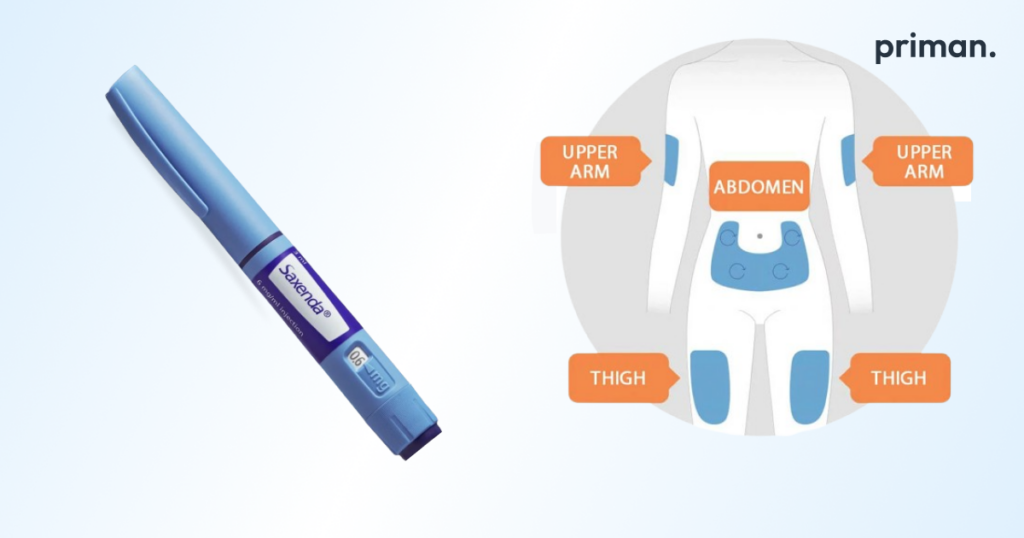The landscape of weight loss medications could soon be changing with the emergence of a new drug called Pemvidutide. Early research suggests this medication might not only help people shed significant weight but also do so while preserving more muscle mass compared to existing treatments.
This blog explores the latest news and insights on Pemvidutide, drawing from recent articles in Quartz, Altimmune’s press release, Forbes, and Everyday Health. It covers key facts about this promising new drug, highlighting both its potential benefits and potential drawbacks.
What is Pemvidutide?
Pemvidutide is a new, investigational medication currently being studied for its potential in treating obesity and a liver condition called MASH (Metabolic dysfunction-associated steatotic liver disease). It works by activating both GLP-1 and glucagon receptors, mimicking the effects of diet and exercise on weight loss. GLP-1 helps curb appetite, while glucagon boosts calorie burning. Additionally, glucagon directly impacts fat metabolism in the liver, leading to rapid reductions in liver fat and cholesterol levels. Clinical trials so far have shown that once-weekly injections of Pemvidutide can lead to significant weight loss, lowered triglycerides and LDL cholesterol, reduced liver fat, and improved blood pressure.
How Does It Work?
Pemvidutide works by:
- Suppressing appetite: You’ll feel fuller for longer and be less tempted to snack or overeat.
- Increasing energy expenditure: Your body will burn more calories even at rest.
- Preserving lean muscle: Unlike some other weight-loss medications, Pemvidutide helps you maintain muscle mass while losing fat. This is crucial for long-term health and metabolism.
Altimmune’s Pemvidutide: Clinical Results
Clinical trials for Altimmune’s experimental weight loss drug, Pemvidutide, have shown promising results with minimal muscle loss. Participants lost an average of 16% body weight, with 75% coming from fat loss and only 25% from lean muscle loss. This is comparable to weight loss achieved through diet and exercise.
In contrast, a trial for Wegovy and Ozempic’s active ingredient (Semaglutide) showed participants lost a higher percentage of lean muscle (40%) compared to fat (60%). This highlights Pemvidutide’s potential to be a safer and more effective weight loss option, especially for women and the elderly who are more prone to muscle loss and related health issues.
The preservation of lean muscle mass during weight loss is crucial, as excessive loss can lead to negative health outcomes such as sarcopenia and bone fractures. Pemvidutide’s ability to minimise muscle loss could make it a game-changer in the weight loss industry.
Preserving Muscle Mass
One of pemvidutide’s standout features is its ability to minimise muscle loss during weight loss. Maintaining muscle mass is a key concern with weight loss, particularly when using GLP-1 drugs like semaglutide, which some experts believe may cause excessive muscle loss. This concern is based on limited data suggesting around 40% of weight loss on semaglutide comes from lean mass, exceeding the typical 25% observed with traditional weight loss methods.
Pemvidutide, however, appears to offer an advantage in this area. Trial data indicates only 21.9% of weight loss is attributed to lean mass, potentially making it a promising option for those concerned about preserving muscle.
The exact reasons behind pemvidutide’s impact on body composition remain unclear. Nevertheless, its potential benefits have prompted GLP-1 manufacturers to invest in developing treatments aimed at mitigating lean mass loss. For now, experts recommend individuals on weight loss drugs engage in regular exercise and maintain adequate protein intake to help safeguard their muscle mass.
Side Effects of Pemvidutide
In clinical trials for Pemvidutide, participants experienced gastrointestinal side effects like nausea and vomiting, similar to other GLP-1 drugs. The trial tested three different dosages of Pemvidutide, two of which did not involve gradually increasing the dose. It’s possible that the manufacturer may adjust the dosing in the future to reduce these side effects.
The Future of Weight Loss
Further research is needed to understand why Pemvidutide uniquely preserves muscle mass and to explore its potential in treating liver disease. While the debate about muscle loss with GLP-1 drugs continues, Pemvidutide offers a promising new option for individuals seeking effective and healthy weight loss which could pave the way for a new era in obesity management.
References:
Altimmune Presents Data From Phase 2 MOMENTUM Trial Of Pemvidutide In Obesity During Oral Presentation At The American Diabetes Association’s 84th Scientific Sessions (2024) Altimmune.com. Available at: https://ir.altimmune.com/news-releases/news-release-details/altimmune-presents-data-phase-2-momentum-trial-pemvidutide
Gil, B. (2024) A Novo Nordisk competitor teased a weight loss drug that minimizes muscle loss seen in other drugs, Quartz. Available at: https://qz.com/altimmune-muscle-weight-loss-1851370538
Roush, T. (2024) What to know about pemvidutide—altimmune says weight loss drug minimized muscle mass loss in trial, Forbes. Available at: https://www.forbes.com/sites/tylerroush/2024/03/27/what-to-know-about-permvidutide-altimmune-says-weight-loss-drug-minimized-muscle-mass-loss-in-trial/
Wollen, R. (2024) Is this drug the next ozempic?, Everyday Health. Available at: https://www.everydayhealth.com/weight/is-this-drug-the-next-ozempic/









